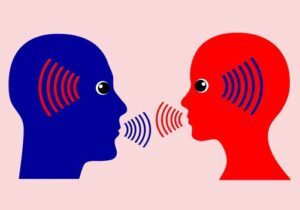“Empathy is seeing with the eyes of another, listening with the ears of another, and feeling with the heart of another.”
– Alfred Adler
Empathy, the ability to understand and share the feelings of another, is a powerful force that can transform relationships and communities. It’s the cornerstone of compassionate communication and the key to fostering deeper connections with those around us. In this blog, we’ll delve into the profound impact of empathy towards others and explore practical ways to cultivate this essential quality in our lives.
The Empathetic Connection:
Walking in Their Shoes:
Empathy begins with stepping into someone else’s shoes, figuratively speaking. It’s about suspending judgment and genuinely trying to see the world from their perspective. When we make this effort, we open the door to meaningful understanding.
The Art of Listening:
Empathetic individuals are active listeners. They don’t just hear words; they tune into emotions, body language, and unspoken cues. By truly listening, we signal to others that their thoughts and feelings matter.
Validating Emotions:
One of the most powerful aspects of empathy is validating someone’s emotions. When we acknowledge another person’s feelings without judgment or dismissal, we create a safe space for them to express themselves.
The Impact of Empathy:
Practicing empathy towards others can have a wide range of impactful benefits, both for individuals and society as a whole. Here are some of the most significant benefits:
Improved Relationships: Empathy is the foundation of strong, healthy relationships. It allows you to better understand and connect with others, leading to deeper bonds, trust, and more meaningful interactions.
Effective Communication: Empathy enhances communication skills. When you understand another person’s perspective and emotions, you can communicate more effectively, resolve conflicts, and avoid misunderstandings.
Conflict Resolution: Empathy plays a crucial role in resolving conflicts peacefully. It helps you see things from the other person’s point of view, making it easier to find common ground and reach mutually satisfactory solutions.
Enhanced Leadership: Empathetic leaders are more effective at motivating and inspiring their teams. They can better understand their employees’ needs, concerns, and aspirations, leading to higher morale and productivity.
Greater Emotional Intelligence: Practicing empathy improves emotional intelligence. You become more aware of your own emotions and those of others, leading to better self-regulation and more empathetic responses.
Reduced Prejudice and Stereotyping: Empathy can challenge biases and stereotypes. When you make an effort to understand people from diverse backgrounds, you become more open-minded and less prone to prejudiced beliefs.
Stress Reduction: Engaging in empathetic acts, such as helping others, can reduce stress levels. Acts of kindness and support trigger the release of feel-good hormones, which can lead to reduced stress and anxiety.
Enhanced Problem-Solving: Empathy allows you to see problems from various angles, leading to more creative and effective problem-solving. Different perspectives can lead to innovative solutions.
Increased Compassion and Altruism: Empathy often leads to increased compassion and a desire to help others. This can lead to more acts of kindness and altruism, creating a ripple effect of positivity in society.
Improved Mental Health: Practicing empathy can enhance your own mental well-being. It fosters a sense of connection and purpose, which can combat feelings of isolation and depression.
Positive Impact on Society: A society where empathy is prevalent tends to be more compassionate, inclusive, and cooperative. This can lead to greater social harmony and collective problem-solving.
Enhanced Personal Growth: As you practice empathy, you become more self-aware and learn more about your own values and beliefs. This self-discovery can contribute to personal growth and a deeper sense of purpose.
Building Trust: Empathy is a cornerstone of trust. When others perceive you as empathetic, they are more likely to trust and respect you, whether in personal or professional settings.
Better Parenting: Empathy is crucial for effective parenting. It helps parents understand their children’s needs, fears, and joys, leading to more nurturing and supportive relationships.
Global Understanding: On a larger scale, empathy can promote understanding and cooperation between diverse cultures and nations, potentially reducing conflicts and promoting peace.
In summary, practicing empathy towards others has a multitude of benefits that extend to individuals, relationships, organizations, and society as a whole. It fosters connection, understanding, and positive change, making it a fundamental quality to cultivate for personal and collective well-being.
Cultivating Empathy:
Cultivating empathy towards others is a valuable skill that can enhance your relationships and contribute to a more compassionate world. Here are some effective ways to strengthen empathy:
Active Listening: Pay close attention when others are speaking. Show that you’re engaged in the conversation by making eye contact, nodding, and using verbal cues like “I see” or “Tell me more.” Avoid interrupting or formulating your response while they’re talking.
Practice Perspective-Taking: Try to see the world from another person’s point of view. Imagine how they might be feeling in a given situation. This exercise can help you understand their emotions and motivations better.
Ask Open-Ended Questions: Encourage deeper conversations by asking questions that can’t be answered with a simple “yes” or “no.” Questions like “How do you feel about that?” or “What was that experience like for you?” invite others to share their thoughts and emotions.
Validate Emotions: When someone shares their feelings with you, acknowledge their emotions without judgment or dismissal. Phrases like “I can see why you’d feel that way” or “Your feelings are valid” show that you respect their emotional experience.
Cultivate Self-Awareness: Understand your own emotions and triggers. When you recognize your own feelings, you’re better equipped to empathize with others’ emotional states. Self-awareness can also help you manage your reactions in challenging situations.
Practice Mindfulness: Mindfulness exercises can help you stay present in the moment and tune into your own emotions as well as the emotions of others. It can improve your ability to empathize by allowing you to fully engage with the person you’re interacting with.
Read Empathy-Enhancing Literature: Books, articles, and stories that explore diverse perspectives and emotions can expand your empathetic capacity. Fiction, in particular, can immerse you in different characters’ experiences and emotions.
Volunteer and Help Others: Engaging in acts of kindness and volunteering for charitable organizations can provide opportunities to connect with people from diverse backgrounds and develop empathy through shared experiences.
Cultivate Curiosity: Approach interactions with a genuine curiosity about others. Ask questions and show interest in their lives and experiences. This can foster a deeper understanding of their thoughts and emotions.
Reflect on Your Interactions: After conversations or interactions, take some time to reflect on how you responded and how you might have shown more empathy. Self-reflection can help you identify areas for improvement.
Seek Feedback: Ask for feedback from trusted friends or colleagues about how empathetic you come across in your interactions. They may provide insights and suggestions for improvement.
Empathy-Building Courses: Consider taking courses or workshops on empathy and emotional intelligence. These can provide structured learning and practical exercises to enhance your empathetic skills.
Remember that empathy is a skill that can be developed and improved over time with practice and self-awareness. By actively working on these strategies, you can strengthen your empathy towards others and build more meaningful and compassionate relationships.




